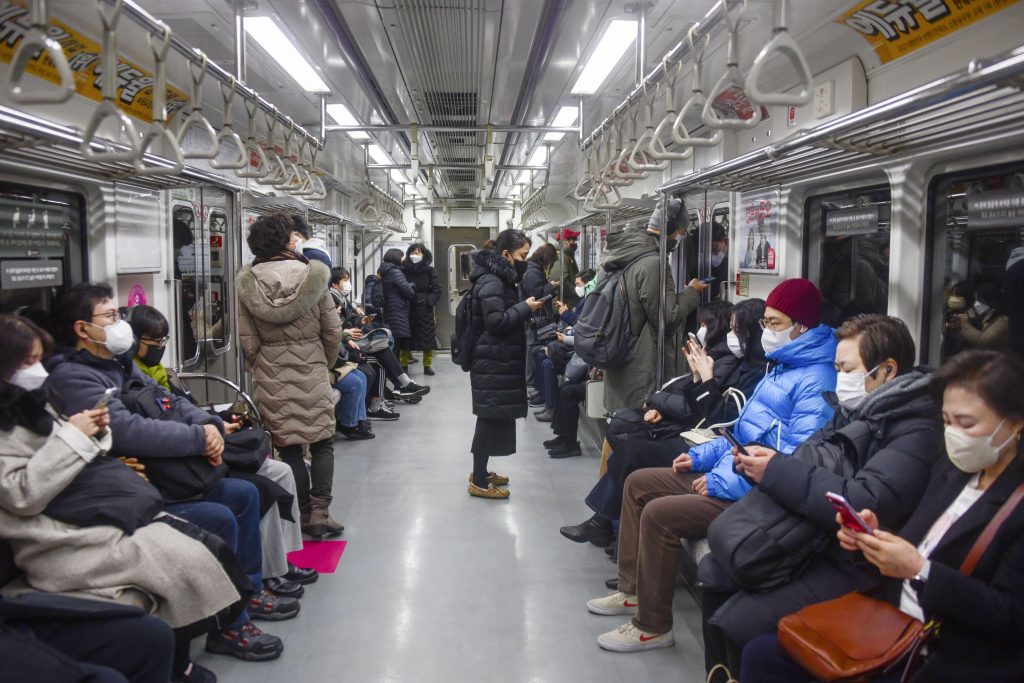The main story of 2023 in South Korea was that another year passed with no progress towards addressing the country’s biggest issues. Young South Koreans continue to achieve world-beating levels of education only to find themselves in their mid-twenties with scant future prospects. Childhood is dominated by a centralised competition for university slots that no longer produce the livelihoods they once promised.
Youth unemployment is a symptom, but the problem runs deeper. Sky-high housing prices make a decent life almost imaginably beyond reach for most. People do not expect that their earnings can even cover the cost of a flat. Many have given up on having a life anything like their parents’. The most visible sign of this disenchantment is the trend of young people deciding not to find life partners. In a family-oriented society, the shift to anti-familism is massive.
It comes as little surprise that population growth has slowed to well below replacement level with fertility rates at a world-record low. Pensioners commit suicide at an alarming rate as seniors in this ageing society struggle to figure out what to do with their long retirement years.
Then there is the constant condition on the Korean peninsula — North–South relations — which saw no movement in 2023.
Five years ago, social and political discussion centred on addressing these challenges. Even if measures to address these issues were not fully implemented or failed entirely, finding solutions to these problems was the government’s main focus. In 2023, South Korea’s government focused less on these issues and instead gave greater priority to demonstrating solidarity with the United States.
South Korea’s politically engaged citizenry also showed signs of weariness in 2023. While critical journalists and commentators continued tirelessly with their work, the year saw few remarkable episodes of social mobilisation.
In the last few months of 2023, partisan politics gained greater attention as parties prepared for National Assembly elections in April 2024. Most developments in party politics were familiar from previous cycles.
Each of the major parties had moments of threatening to split. The opposition Democratic Party managed to withstand senior members showing their displeasure with popular party leader Lee Jae-myung and the year ended with only a few defections from the party.
President Yoon Suk-yeol’s People Power Party appointed an innovation committee whose proposed ‘innovations’ mimicked techniques of the past and were not adopted. Yet another round of intra-party squabbling over how to nominate candidates is likely to follow in the run up to the 2024 election.
President Yoon was more visible in foreign affairs than in domestic affairs in 2023. Foreign policy in the first full calendar year of the Yoon administration followed his promise to remain close with the United States. The relationship remains so close that signalling allegiance to Washington dominated Seoul’s international engagements.
In January 2023, South Korea’s Indo-Pacific Strategy supplanted the New Southern Policy of former president Moon Jae-in’s administration. Where the Moon initiative was underdeveloped, Yoon’s Indo-Pacific Strategy is a carbon copy of Washington’s vision. Containing little reference to South Korea’s existing relations and interests in South or Southeast Asia, the document seems to suggest that Seoul’s external ties all go through Washington.
That impression was deepened with trilateral meetings between South Korea, the United States and Japan. Yoon and the foreign ministry were keen to show that they get along well with the US and Japanese governments. What specific gains this yields for South Korea remains unclear.
The Indo-Pacific Strategy moves South Korea closer to getting pulled into a potential conflict in the Taiwan Strait. This was a possibility that all major voices in South Korean society wanted to avoid.
In reality, life is too complicated for South Korea to simply follow its ally the United States on all matters. The economic relationship with China is too important for that. Yoon has already had to walk back some of his anti-China rhetoric.
More broadly, Yoon’s approach appears to be one of making noise in support of the United States decoupling from China while allowing actual relations to continue as usual. How this position might be maintained over the coming years is puzzling.
In 2024, Yoon will continue to court US support. South Korea will host the third Summit for Democracy, an initiative of US President Joe Biden. Seoul’s role in the event fits with Yoon’s vision for the country to become a ‘global pivotal state’.
Except for expressing an aspiration to draw attention to the country, the slogan rings hollow for ordinary South Koreans in a year of resounding emptiness.
Erik Mobrand is Associate Professor of Korean Studies at the Graduate School of International Studies, Seoul National University.
This article is part of an EAF special feature series on 2023 in review and the year ahead.

